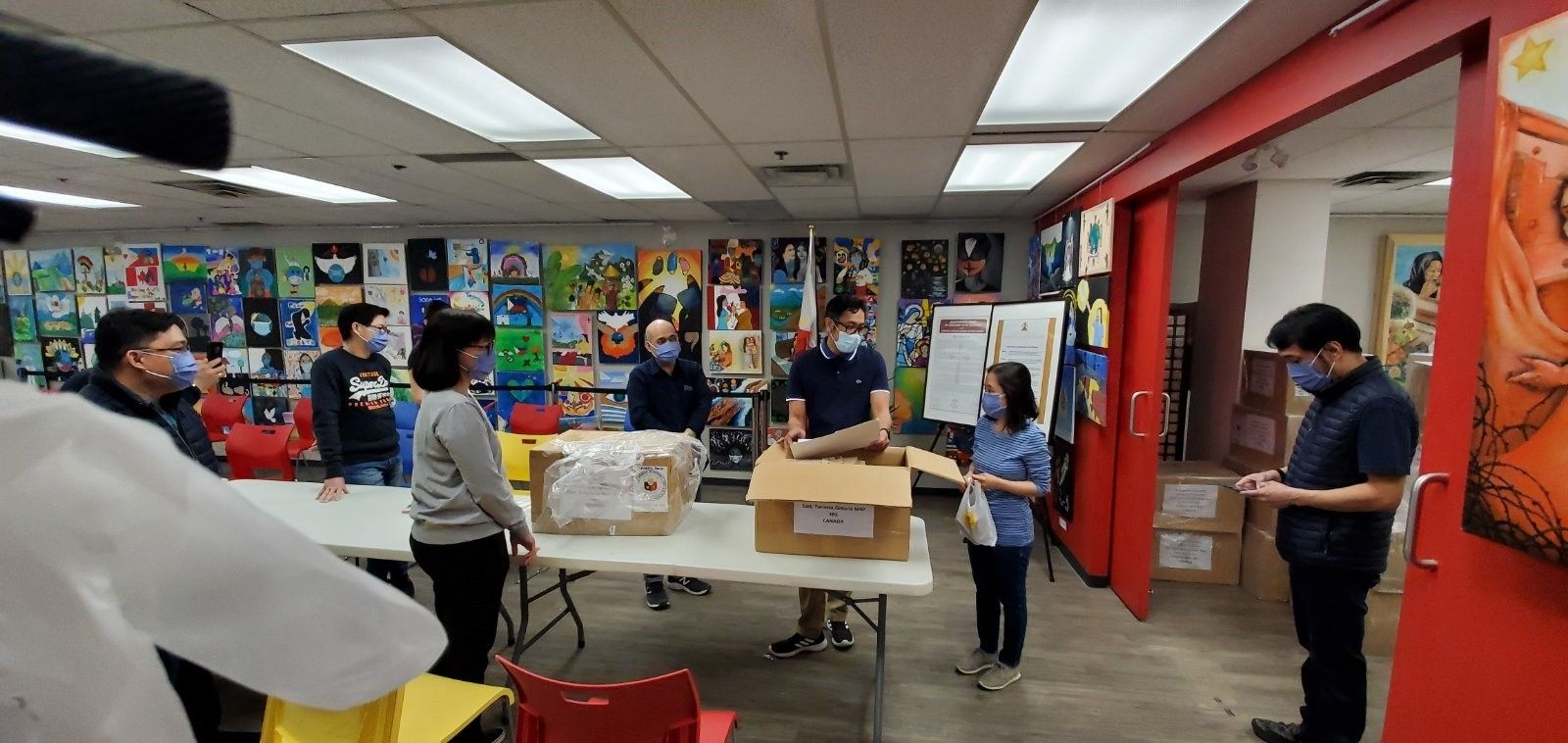Filipinos in Canada seek extension on accepting mail-in ballots due to late deliveries

MANILA, Philippines — Filipino voters in Canada have asked the Commission on Elections to accept and count the mail-in ballots received by consulates even after the May 9 deadline since the election packets were mailed out late.
“We have requested since last week for Comelec to consider accepting ballots postmarked before May 9 since the ballots were mailed out late,” Koalisyon Kontra Daya (KKD) Canada spokesperson Marissa Corpus told Philstar.com in an online message over the weekend.
“This matter was referred by [the Philippine Consulate General in Toronto] to Comelec and as it is a serious concern [and] we keep following this up,” she said, adding that they have yet to receive a response.
The KKD Canada coalition is formed by Filipino community leaders and representatives from several organizations, including youth and migrant groups, Kabayan 4 Leni-Kiko, Tropang Canada for Leni-Kiko, 1Sambayan Canada Chapter, Malaya Movement in Canada, and the Bayan Muna Party-list in Canada.
There are four foreign service posts in Canada serving almost a million Filipinos, which includes an embassy in Ottawa that serves 6,502 registered land-based voters in Canada and Bermuda. The Philippines also has a consulate each in Calgary serving 16,524 registered voters, Toronto for 39,108, and Vancouver for 27,917 Filipino voters.
A Rappler report showed that Canada was one of the top 10 countries with the most number of registered Filipino voters at 90,545.
According to census data collected in 2016, around 837,130 people in Canada are Filipinos. The Philippines was then the “top source of immigrants” in the country. Updated census data will be released later this year.
Late deliveries
Overseas voting kicked off last month, April 10. Under the overseas absentee voting system, Filipino voters abroad are supposed to have at least a month to cast their ballots before the May 9, 7 p.m. Philippine time deadline.
However, some foreign service posts in North America received election packets for voters under their jurisdiction late. KKD Canada Convenor Nova Rellosa-De Leon said “voters should not be penalized for these days.”
“In previous elections, we received our ballots before the start of [the overseas voting] period. Why so late this elections? Comelec was very delayed in sending the ballots,” Corpus said.
In a town hall meeting with the Philippine Consulate General in New York, the poll body said that the delays were due to logistics problems and its late deliveries from its suppliers.
READ: Some election paraphernalia delivered late, but no extension needed — Comelec
The embassy in Ottawa on April 11 said it has not yet received election-related materials. It was only able to mail out the first batch of ballots to registered voters on April 13 and 14.
Meanwhile, the consulates in Calgary and Toronto started preparing to mail out election packets to voters under their jurisdiction on April 9.
“Each one had to be checked and mailed out and we were advised that these were completely mailed out more than 1.5 weeks after receipt. We have to consider the postal service,” Corpus said.
In a statement dated April 19, the consulate in Toronto said it had completed mailing out all the ballots to voters under its jurisdiction.
The coalition did note that the election packets included stamps on top of sufficient postage.
“We did not have this convenience in previous elections. [It] encourages more people to vote as it saves them time and money,” Rellosa-De Leon said.
Concerns
KKD Canada reported that there are some voters from Hamilton and Toronto who have yet to receive their ballots as of April 28. They said the consulate in Toronto told them that the ballots were mailed out in alphabetical order.
“When asked what happens next week and [if] these voters still have not received their ballots – [the consulate said] the voters must email the PCG who will refer the matter to [the] Comelec requesting for instructions. With time constraints, this will disenfranchise these voters,” Corpus said.
The coalition wants foreign service posts to improve their information dissemination strategy and maximize the use of social media on top of coordinating with Filipino community organizations. This also includes improving the interface of the foreign service posts’ websites.
Rellosa-De Leon recommended constant updating of Filipinos on the location of the election packets, also calling on the poll body and the Department of Foreign Affairs to “adopt a policy of transparency throughout the entire OAV process.”
However, the coalition commended the consulate in Toronto for being open to hearing out their concerns.
“They readily agreed to a Zoom meeting with Koalisyon Kontra Daya [representatives] and exhaustively answered our questions,” Rellosa-De Leon said.
The coalition said there are a limited number of vote-counting machines (VCMs) at the Toronto consulate, which serves the most number of Filipino voters totaling nearly 40,000.
Corpus said the post only has two VCMs and they have only processed 1,000 ballots so far. They also reported that the machines had misfeeding issues, but only one ballot has been spoiled due to the envelope glue when the voter sealed it.
“More machines are needed,” Corpus said. “In the eventuality that a machine breaks down it will be a problem.”
Alleged pre-shading of ballots
On April 14, the consulate in Vancouver released a statement denying the possibility of the post mailing out an alleged pre-shaded ballot after the circulation of a Facebook post. This comes just after reports of the Philippine Embassy in Dubai denied claims of a pre-shaded ballot and a Singapore-based voter received a spoiled ballot.
“Anyone who believes they received a pre-shaded ballot is welcome to come to the consulate so we could authenticate the ballot,” the Vancouver post said in a statement.
- Latest
- Trending































